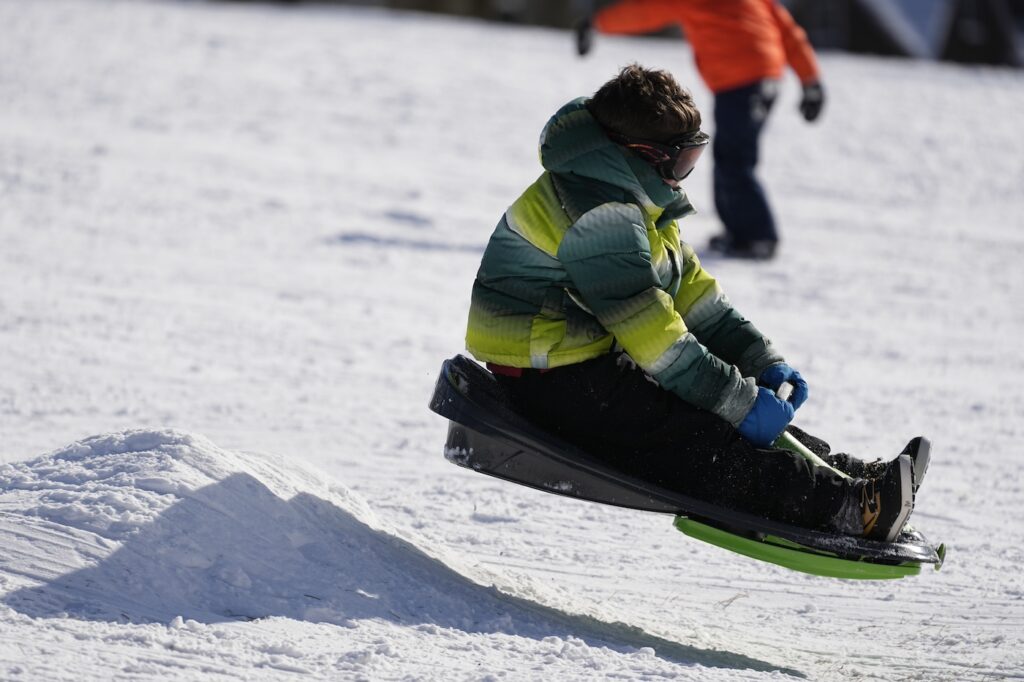
With schools out around Middle Tennessee, children have been sledding and hurling snowballs more than studying this week. That loss of classroom time can present some challenges when kids return. But snow days don’t have to be a total wash for learning.
When students get back in school, there’s bound to be some lost momentum, said Amy Nystrand, executive director of the Educators’ Cooperative, a professional support network for teachers.
“It is a challenge to kind of level-set and reset from students who will have had very different experiences this week,” she said.
But Nystrand thinks that teachers are up to the task. “We’re nothing if not flexible and professional, so that kind of comes with the territory.”
Research also suggests that a week off of school shouldn’t have a long-term impact on students. A 2014 study for the National Bureau of Economic Research found no relationship between school closures and student performance. It did find, however, a strong relationship between absences and test scores. Metro Nashville Public Schools spokesperson Sean Braisted emphasized the importance of getting students to school on time when classes resume.
Katherine Schneeberger McGugan is a professional learning specialist with MNPS who has researched pandemic learning. She said there can be a sense of urgency for kids to catch up when they’ve spent time out of the classroom, but that kind of framing “can take away from the humanity” of teachers, students and their experiences.
Nystrand echoed that sentiment.
“I think any rush to make up these days is in some ways a manufactured rush,” Nystrand said. “I teach math. But I really teach kids. And so some of this work is going to be tending to the whole child.”
Snow days open the door to different types of learning
Nystrand said many students probably haven’t seen this much snow, or haven’t in a long time. In addition to the excitement, this week presents a “huge learning opportunity” for students to observe the world around them.
Another fringe benefit of snow days is the chance for unstructured play, where kids come up with their own activities. Nystrand said this kind of play can help children be creative and stretch the limits of their own imaginations.
“Enforcing some off-screen time where they’re able to — for lack of a better word — get bored can really be very beneficial for their brain development, and something that they don’t get a lot of,” Nystrand said.
Tips on supporting your student
- Keep a routine – Maintaining some sort of structure during snow days can help students better adjust when they return to highly structured school days. Changing out of pajamas and having some activity options planned before and after lunchtime can help students “timestamp” their days, said Nystrand.
- Reading activities – If your child isn’t able to read on their own, reading to them is very beneficial. For young readers, there are lots of free ebooks on the Tennessee Electronic Library.
- Math games – Nystrand said there are plenty of math games you can play with a standard deck of cards. This article has several options ranging from simple addition to comparing the value of fractions.
- Be prepared for a little extra homework – Teachers may decide to send kids home with a few extra assignments after the unexpected week off. Schneeberger McGugan advises parents to be ready to support students in completing their work.
- Communication is key – Schneeberger McGugan says to keep lines of communication open with your child’s teacher. That’s especially important if there’s a discrepancy between the messaging you’re getting from school and your child. “I know that every teacher I’ve worked with would rather parents inquire before things go haywire,” Schneeberger McGugan said.

